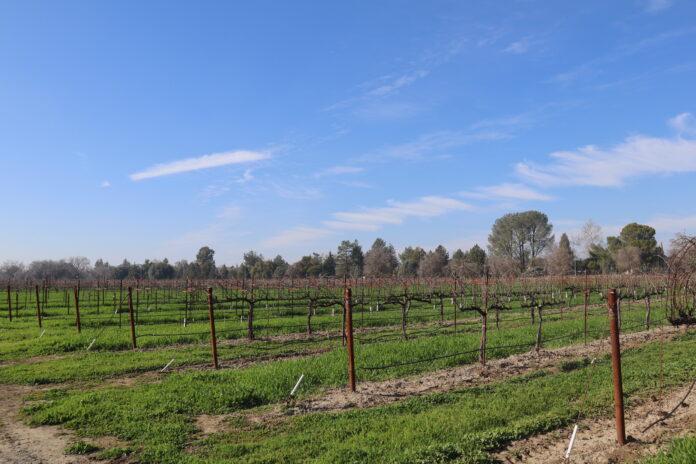UC Davis is among six programs that have been given a total of $9 million by the USDA National Institute for Food and Agriculture to help the agricultural community in California
By JENNIFER MA — campus@theaggie.org
The U.S. Department of Agriculture announced on Jan. 12. that UC Davis is one of six programs to receive a combined total of $9 million in funding that will go toward climate research and solutions. This funding comes from the National Institute of Food and Agriculture (NIFA)’s Agriculture and Food Research Initiative (AFRI), which is the leading grants program for agricultural sciences in the nation.
The remaining five $1.5 million grants have been awarded to Pennsylvania State University, Montana State University, Ohio State University, Desert Research Institute Native Climate and USDA Caribbean Climate Hub.
All six programs will work towards net-zero emissions in agriculture and working lands and training a workforce to consider the environmental impacts in management decisions.
According to a press release by UC Agriculture and Natural Resources, California has the largest and the most diverse agricultural economy in the nation with a revenue of over $50 billion — larger than the revenues of the other ten Western states combined.
“Despite its size, the state is highly vulnerable to climate change,” the statement reads.
To combat this vulnerability, UC Davis will specifically work towards the previously mentioned goals by assessing stakeholder needs, offering climate-smart agriculture training for technical service providers, workshops for farmers and ranchers and student education with UC Cooperative Extension (UCCE) service-learning opportunities.
These workshops will prioritize socially-disadvantaged producers, such as new and first-generation farmers and ranchers. Content includes a broad range of topics from local impacts of climate change trends to drought planning strategies.
Additionally, due to the large size and diversity of agriculture in California, there will not be a one-size approach. Workshops for farmers and ranchers will be region specific and five county-based UCCE academics will serve as regional leads for these workshops.
UCCE rangeland management specialist at UC Davis Leslie Roche expressed that there are both benefits and challenges to having so many people involved in the program.
“There’s a lot of moving parts,” Roche said. “We were putting this together and we have maybe 40 plus different partners and organizations. And it’s awesome. We have so many folks interested in working together on this but also, it’s gonna be a big challenge to figure out how all these parts are going to fit together.”
For the student education aspect of this project, college students will be able to take classes and also gain practical experience related to climate and agriculture. This pathway includes the UC Merced Summer Institute on Climate and Agriculture certificate course, the UC Davis course “Science and Society: Climate Change and Agriculture” and a certificate course for community college students.
“The education focus for me is really about broadening both public and student understanding about climate change and agriculture, but then taking what I know, what others know, what the agricultural producers in the state know and making that available to community college and undergraduate students in California,” Assistant Professor in Community and Regional Development Mark Cooper said.
Written by: Jennifer Ma — campus@theaggie.org





